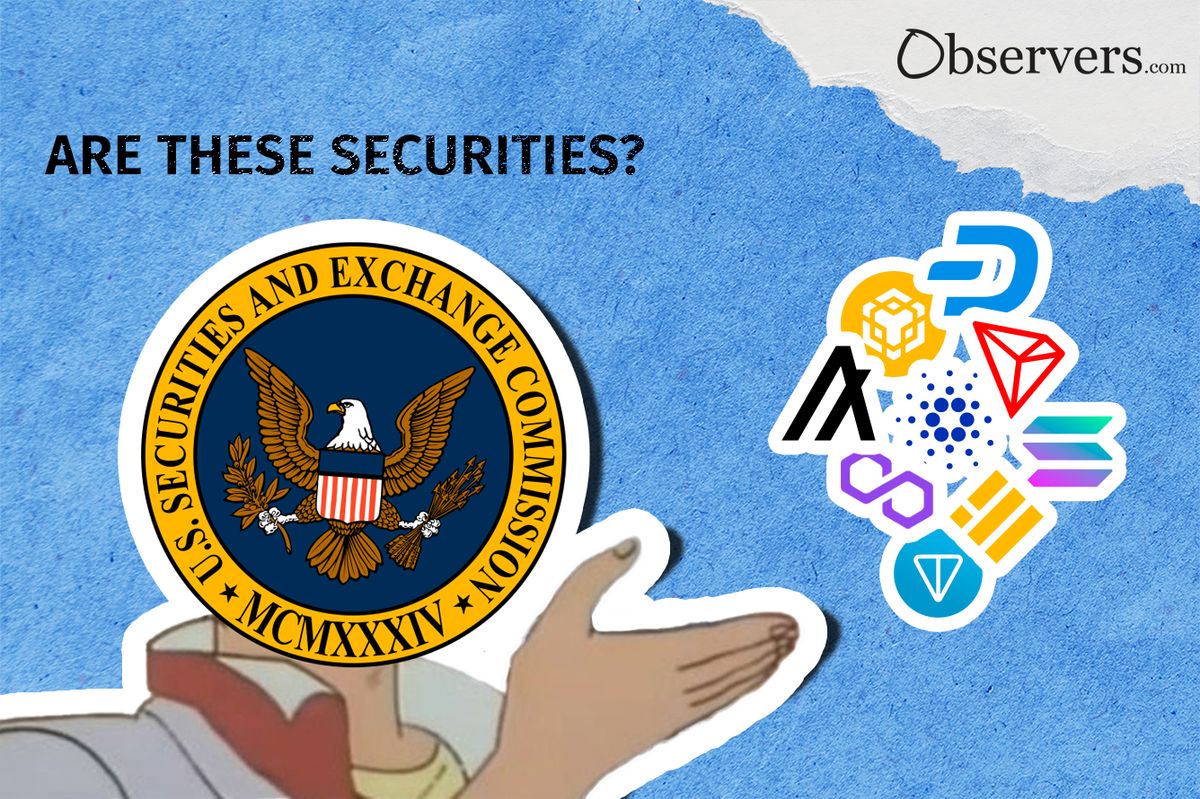
Over the years the Securities and Exchange Commission (SEC) has labelled 55 different crypto tokens as securities. The recent case against Binance mentions ten coins including BNB, BUSD, SOL and ADA. The list of tokens in the highly similar case against Coinbase is slightly different and includes 13 coins.
In order not to draw the wrath of regulators, many exchanges are currently trying to eliminate ambiguous coins. Lately, some platforms have delisted certain coins named in the SEC’s recent lawsuits.
Robinhood ceased trading of ADA, MATIC, and SOL (Cardano, Polygon and Solana) on June 27, citing the SEC’s actions against Coinbase and Binance as reasons for the delisting, as the lawsuits “introduced a cloud of uncertainty” around the tokens. Derivatives exchange Bakkt is also delisting these three coins due to a lack of clarity. Retail trading platform eToro halted new purchases of ALGO, MANA, MATIC and DASH.
The current lawsuits mark the first time that Cardano, Polygon and Solana have specifically been labeled as securities by the SEC. Solana and Cardano publicly disagreed with this, but still saw a sharp drop in their token prices at the beginning of June, with a partial recovery since then.
The three altcoins are all in the top-15 biggest digital assets by market cap and could have an impact on the wider crypto market, so their fluctuations are not without concern. Other crypto companies are rushing to try to protect themselves. For example, Celsius announced that it be selling all altcoins and will be converting them into Bitcoin and Ethereum.
SEC Chair Gary Gensler once claimed that everything other than Bitcoin is a security and will be controlled by the agency. While it seems unlikely, if the regulator ever has that confirmed in court - even partially - then we are likely to Observe many more delistings.
These tokens are currently labeled as securities by SEC: XRP, Telegram’s Gram (TON), LBRY Credits (LBC), OmiseGo (OMG), DASH, Algorand (ALGO), Naga (NGC), Monolith (TKN), IHT Real Estate (IHT), Power Ledger (POWR), Kromatica (KROM), DFX Finance (DFX), Amp (AMP), Rally (RLY), Rari Governance Token (RGT), DerivaDAO (DDX), XYO Network (XYO), Liechtenstein Cryptoasset Exchange (LCX), Kin (KIN), Salt Lending (SALT), Beaxy Token (BXY), DragonChain (DRGN), Tron (TRX), BitTorrent (BTT), Terra USD (UST), Luna (LUNA), Mirror Protocol (MIR), Mango (MNGO), Ducat (DUCAT), Locke (LOCKE), EthereumMax (EMAX), Hydro (HYDRO), BitConnect (BCC), Meta 1 Coin (META1), Filecoin (FIL), BNB (BNB), Binance USD (BUSD), Solana (SOL), Cardano (ADA), Polygon (MATIC), Cosmos (ATOM), The Sandbox (SAND), Decentraland (MANA), Axie Infinity (AXS), COTI (COTI), Paragon (PRG), AirToken (AIR), Chiliz (CHZ), Flow (FLOW), Internet Computer (ICP), Near (NEAR), Voyager Token (VGX), Nexo (NEXO), FTX Token. The agency also considers 13 Mirror Protocol mAssets to be securities.

